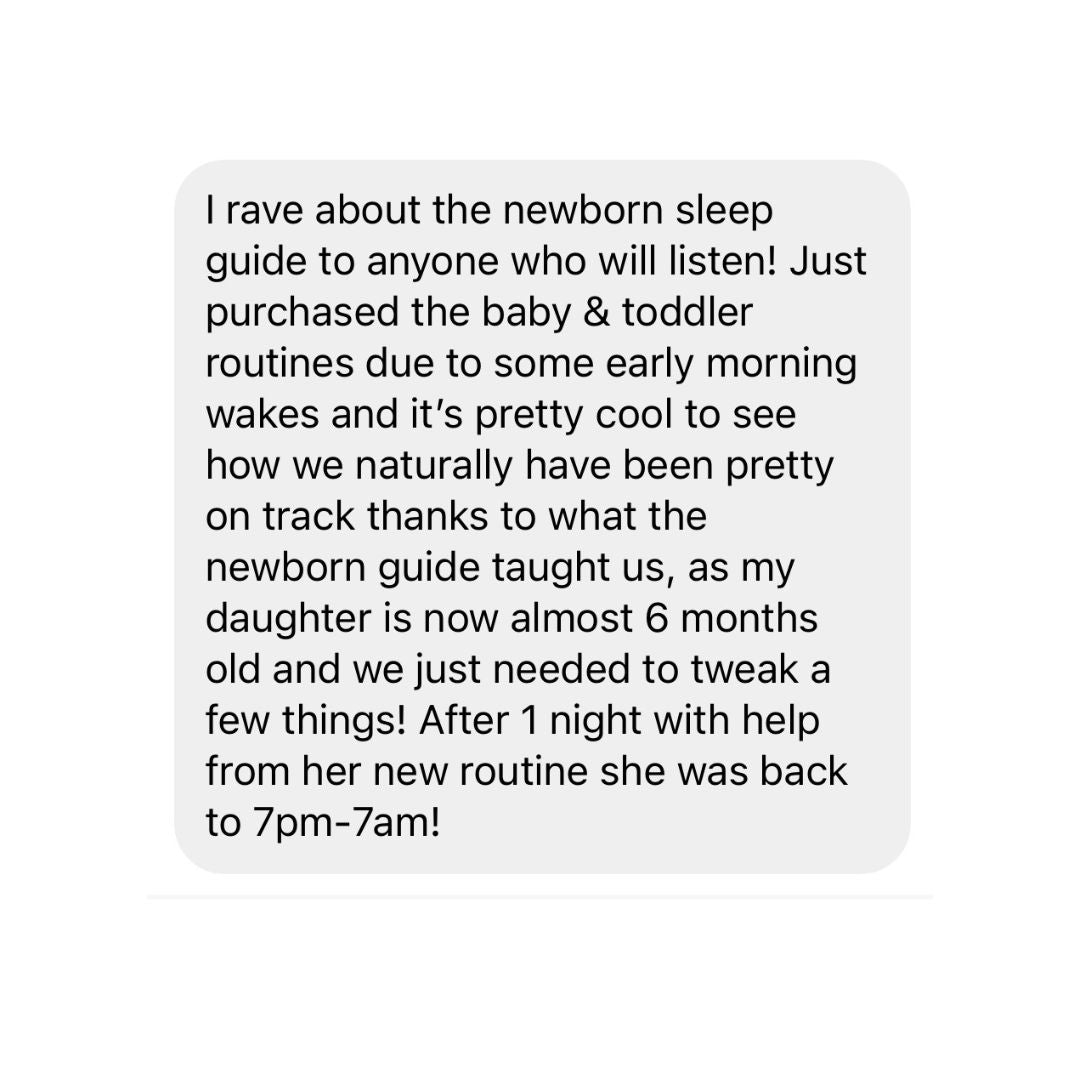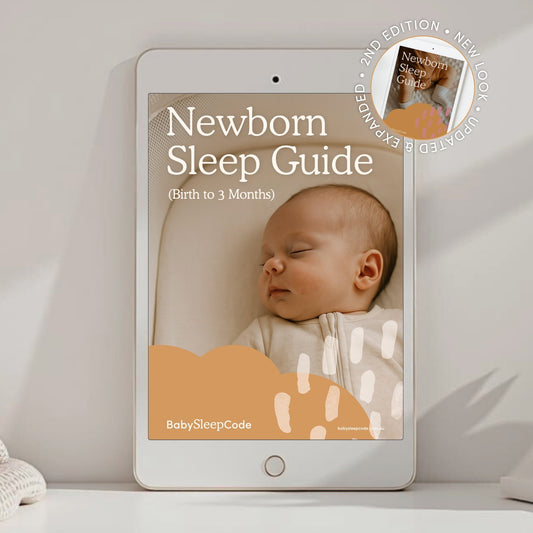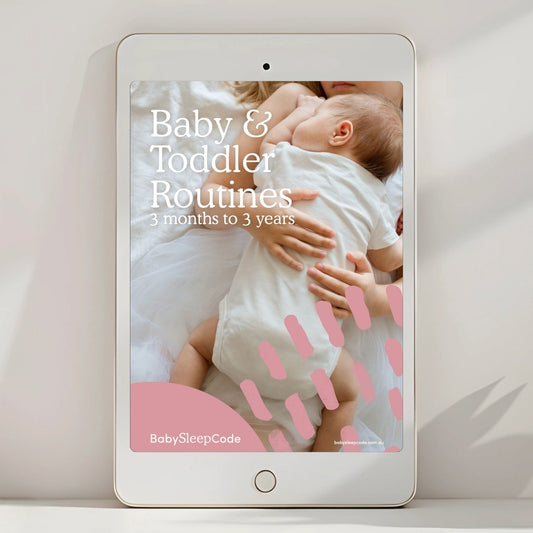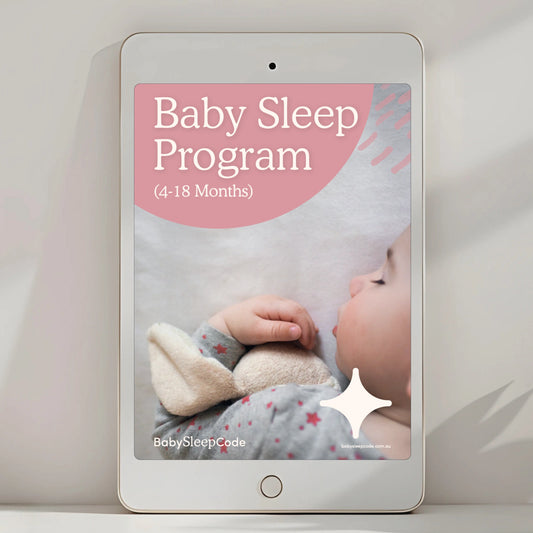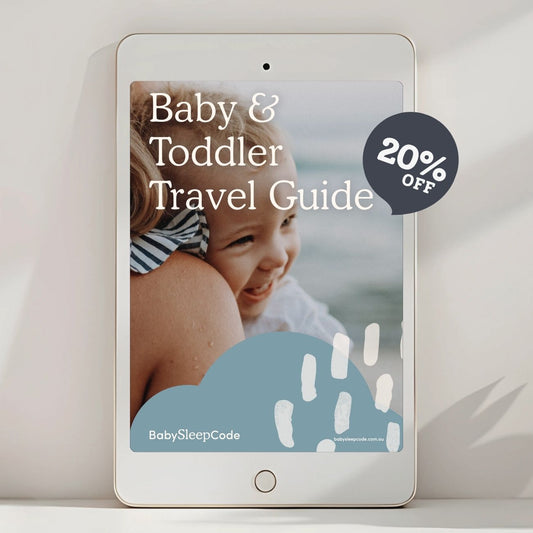At around 8 weeks babies start to produce their own melatonin (a naturally occurring hormone that helps them sleep at night). You can start to see longer stretches of sleep at night, but it often coincides with naps becoming more difficult and many babies will start catnapping. But this doesn't mean long naps are gone forever! It just means it's time to start focusing on setting up some great sleep foundations to get those long naps back.
4 Tips to help with catnapping:
#1 Block out that light. Your baby is beginning to wake up and is much more aware of their surroundings. This means they can be distracted and overstimulated easily. Blocking out the light in the room they sleep will help them wind down at nap time, and makes for easier settling.
#2 White noise. After being surrounded by whooshing noises in the womb for nine months the outside world can feel alarmingly quiet to a baby. Playing white noise during all sleep times can be very soothing, and it helps to create a consistent soundtrack that will allow your baby to drift more easily from light to deep sleep phases.
#3 Sleepy rituals. At around 8 weeks, your baby will start to recognise patterns in the world around them. So it’s a great time to set out some consistent sleep rituals that your baby can begin to associate with sleep time. This can be a simple set of steps that you run through before every nap time - like, wrapping them in their swaddle (or sleeping bag on), turning the white noise on, turning the lights off, singing a little song or saying a simple sleep phrase, and then placing them in their bassinet to sleep.
For bedtime, you’ll want to elaborate on these steps and add a daily bath or sponge bath, and a book / or baby massage / or music, something that helps your baby understand they’re heading into a consolidated stretch of sleep.
#4 Get the timing right. If you’re still working off of 45-60 min wake windows, it’s time to lengthen them! Babies need enough awake time to build up enough sleep pressure to be able to nap well. If you settle them to sleep too early (even if they were showing tired signs), they’ll end up having a short nap because they simply weren’t tired enough to sleep any longer. Which is why following age-appropriate wake windows is really helpful. It ensures they have an adequate time awake (not too much, or too little) to give them the best chance of taking a decent nap.
Still struggling with catnapping? Our Newborn Sleep Guide can solve your nap troubles.
"I started using the guide since my boy was about a month old and it has been a fantastic support for our family. My boy is now 10 months old and he is thriving off the predictable routine. He is a great sleeper at home and it is all thanks to this guide." Elyce
"Having this guide from 3 weeks of age has been a life saver. The routine has been so easy to follow and helped me feel comfortable planning my days. My baby is now 11 weeks old and has just slept 12 hrs straight 3 nights in a row!" Jacqs. T, Newborn Sleep Guide
___
Are you also experiencing late and fussy evenings? Check out our blog, Three Tips to stop the Witching Hour














